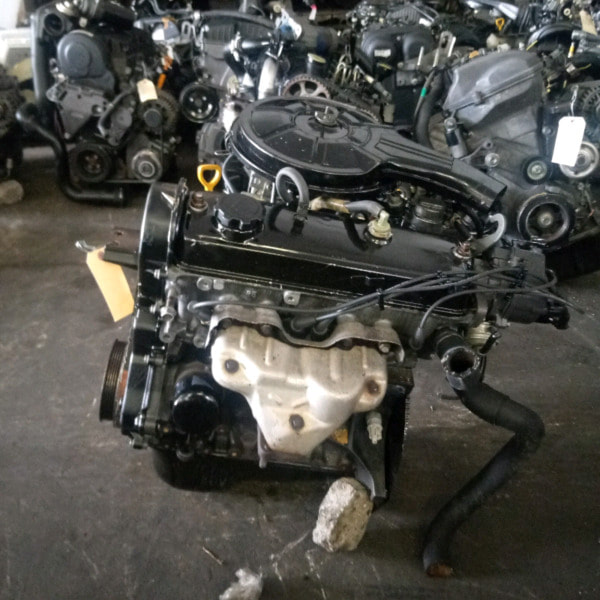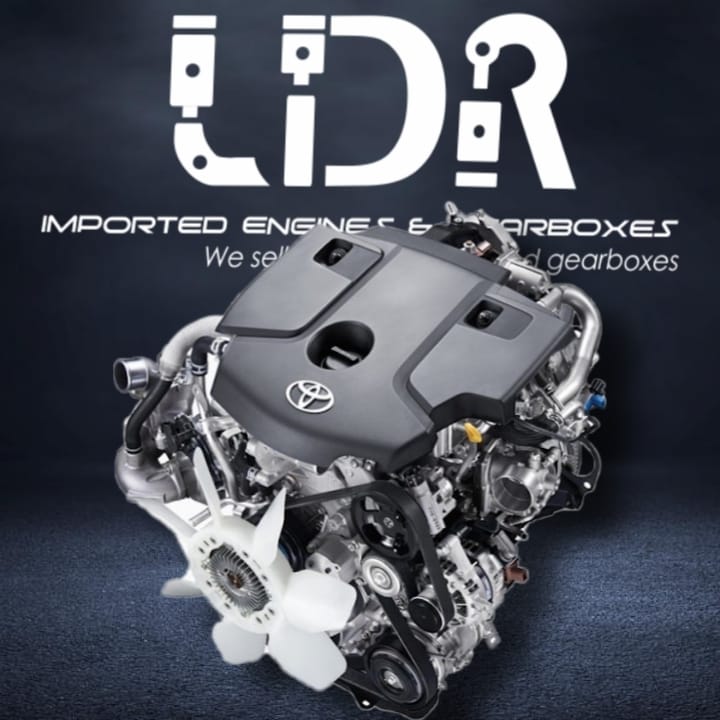Revitalize Your Automobile: Toyota Tazz Engine for Sale Now Readily Available
Revitalize Your Automobile: Toyota Tazz Engine for Sale Now Readily Available
Blog Article
Smart Purchaser's Checklist: Trick Includes to Review in Engines Before Making an Acquisition
When taking into consideration buying an engine, there are numerous crucial functions that a critical customer ought to evaluate to guarantee they are making an educated choice. From the sort of engine to its efficiency metrics, gas efficiency, maintenance, and sturdiness prices, each element plays an essential role in establishing the engine's suitability for the designated objective. By very carefully checking out these variables, purchasers can purchase that not only meets their current needs but also confirms to be a wise long-term investment.
Engine Type Examination

When evaluating engine types for an acquisition, it is vital to consider the details requirements of the designated application. Various engines are designed with differing capabilities and functions to fit a variety of requirements. Understanding the primary objective for which the engine will certainly be made use of is essential in making an educated choice.
For applications needing high power outcome, such as heavy-duty industrial equipment or big automobiles, diesel motor are usually preferred as a result of their efficiency and torque abilities. On the various other hand, fuel engines are commonly picked for smaller tools, automobiles, and power devices where lighter weight and greater RPM efficiency are advantageous.
In addition, the atmosphere in which the engine will run should be taken into account (Toyota Tazz Engine For Sale). Elements such as air, elevation, and temperature high quality can affect the engine's efficiency and longevity. Selecting an engine kind that is ideal for the particular operating problems will certainly assist make sure ideal effectiveness and longevity
Efficiency Metrics Analysis

Fuel Efficiency Evaluation
Assessing fuel effectiveness is a pivotal consider establishing the operational cost-effectiveness and environmental impact of an engine. Gas performance describes the amount of power an engine can remove from a specific amount of fuel. It straight impacts the total overhead of the engine, making it a vital consideration for customers seeking to enhance their lasting costs.
When assessing fuel effectiveness, it is vital to think about metrics such as miles per visit this site gallon (MPG) or litres per 100 kilometers (L/100km) depending upon the region. These metrics offer a clear indication of exactly how much an automobile can travel on a system of fuel, permitting purchasers to approximate fuel prices precisely. Additionally, technologies like hybrid systems, turbocharging, and straight gas injection can significantly influence gas performance by enhancing combustion effectiveness and lowering power losses.

Longevity and Reliability Inspect
Considering the considerable effect of fuel effectiveness on functional expenses and environmental sustainability, the next crucial element to assess in engine acquisition is the durability and dependability of the engine. Longevity describes the engine's ability to endure wear, deterioration, and tension over an extended period, making sure a longer lifespan. Integrity, on the various other hand, relates to the engine's consistency in performance under different problems without unanticipated break downs or failures.
To assess the toughness and integrity of an engine, several elements need consideration. Checking out the engine's construction products and layout can provide insight into its robustness and resistance to use. Additionally, assessing historic data on the engine design's performance, upkeep needs, and common issues reported by individuals can assist assess its integrity.
Furthermore, qualifications from trusted organizations, service warranty offerings, and manufacturer credibility for creating dependable engines are important indicators of longevity and reliability. Conducting detailed research study, looking for suggestions, and evaluating maintenance documents can assist here are the findings in making an informed choice on acquiring an engine known for its longevity and dependable efficiency.
Cost and Upkeep Considerations
When contemplating engine purchase decisions, an important facet to look into is the economic ramifications coupled with upkeep considerations. The price of an engine extends beyond the first purchase price. It is important to assess aspects such as fuel efficiency, ongoing maintenance expenses, and the accessibility of spare parts. Selecting a fuel-efficient engine might result in long-term price financial savings regardless of a possibly higher ahead of time rate. Furthermore, assessing the upkeep requirements of different engine designs is crucial. Some engines might necessitate constant maintenance or specialized care, leading to raised maintenance expenditures in time. Thinking about the accessibility and price of spare parts is additionally extremely important. Engines with easily accessible and Get More Info moderately valued extra parts can substantially reduce maintenance expenses and downtime. Prioritizing cost-effectiveness and ease of maintenance can lead to a more lasting and economical engine investment in the future.
Verdict
To conclude, it is important for purchasers to completely assess key functions in engines before purchasing. By taking into consideration the engine kind, efficiency metrics, gas efficiency, sturdiness, cost, maintenance, and dependability needs, purchasers can make an educated choice that fulfills their expectations and needs. This thorough assessment process ensures that purchasers select an engine that will certainly give optimal performance and longevity for their planned use.
From the type of engine to its efficiency metrics, gas performance, toughness, and upkeep expenses, each facet plays a crucial role in identifying the engine's viability for the intended objective. Gas efficiency is an important efficiency statistics, highlighting exactly how properly the engine converts gas into usable energy - Toyota Tazz Engine For Sale. Fuel performance refers to the quantity of energy an engine can draw out from a certain amount of fuel.Considering the considerable effect of fuel efficiency on functional costs and environmental sustainability, the following important facet to assess in engine purchase is the longevity and dependability of the engine. By considering the engine kind, performance metrics, fuel performance, toughness, price, dependability, and maintenance requirements, purchasers can make an informed choice that meets their assumptions and requirements
Report this page